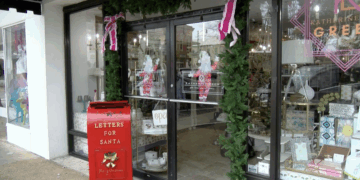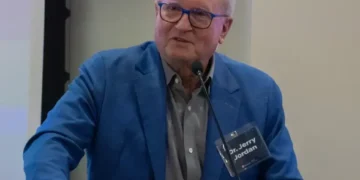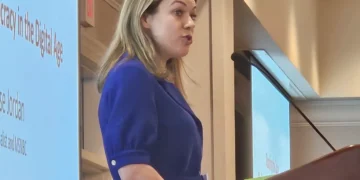In Oxford, CVS is currently out of stock of at-home COVID-19 tests in the store as well as online, and Walmart, which was previously out of stock, has a limited inventory available. Walgreens currently has a limited stock available online and in the store, as well as Kroger.
The surge in Delta variant cases over the last month has contributed to the increase in demand for these at-home tests. Local testing facilities and pharmacies that have been administering tests since the beginning of the pandemic are still available to those seeking a COVID-19 test, but the convenience of the at-home test makes it more accessible to a wider range of people.
Dr. Beau Cox, Executive Director of Mississippi’s Pharmacist Association, says that “the greatest benefit to the at-home test is convenience.” Many people are more likely and able to purchase a test for $20-30 rather than going to a clinic during set hours and having to pay a fee, according to Cox.
Grace Bennett, who was seeking a quick result to determine whether or not she had contracted COVID-19, purchased her test from Walgreens three weeks ago. Bennett said that the test was simple to use and provided her with her results within 10 minutes. The test she purchased cost $20 and came with two tests.
Dr. Hubert Earl Spears, who works at the University of Mississippi Health Clinic, said the at-home test makes it simpler for people who do not have health insurance to get tested.
“For people with health insurance, most tests at facilities are covered by their insurance, Medicare or Medicaid. Most at-home tests purchased over the counter are not covered,” Spears said. “Most at-home tests purchased over the counter are not covered. If one has no type of insurance coverage, at-home over-the-counter tests may be the least expensive modality.”
Retailers around the country are facing an increase in demand for at-home COVID-19 tests following the White House’s announcement on Sept. 9 of President Biden’s nearly $2 billion rapid testing plan.
On the White House website, it states that the plan aims “to improve access to rapid tests for all consumers, top retailers that sell rapid COVID-19 tests – Walmart, Amazon and Kroger – will offer to sell those tests at-cost for the next month.”
Under the six-pronged national plan, President Biden calls for these tests to be sold for up to 35 percent less. The plan also “will expand the number of retail pharmacy sites around the country where anyone can get tested for free through the HHS free testing program to 10,000 pharmacies.”
The increased demand for at-home tests, however, has put a strain on the companies and manufacturers, resulting in shortages nationwide. Ron Gutman, CEO of Intrivo, a testing manufacturer, told USA Today that “there is a big shortage in the market right now across the board. We have a lot more demand than we have ever seen before.”
Retail chains like CVS are responding to the supply shortages for at-home tests by limiting the number of tests someone can buy. CVS is limiting customers to purchasing four tests in the store and six online. A CVS spokesperson told Insider that the limitation is a result of Abbott’s manufacturing delays.
“In the mid-summer, noting the decrease in incidences of infections across the country before the delta surge, Abbott misjudged the demand that has resulted from the delta surge, and ceased production of their product,” Spears said.
Abbott has been one of the leading producers of the antigen test with their product Binax Now, according to Spears.
Abbott has since resumed production, but, in an email written to CNN, Abbott’s spokesperson, John Koval said, “We’re seeing unprecedented demand as case rates rise, and we’ve been scaling up manufacturing since Delta became the dominant strain and new CDC guidance called for a re-prioritization of testing.”
Koval says there will continue to be supply shortages in the coming weeks, but “we’re working with our customers to ensure tests get to where they’re most needed and we’re ramping back up.”





































